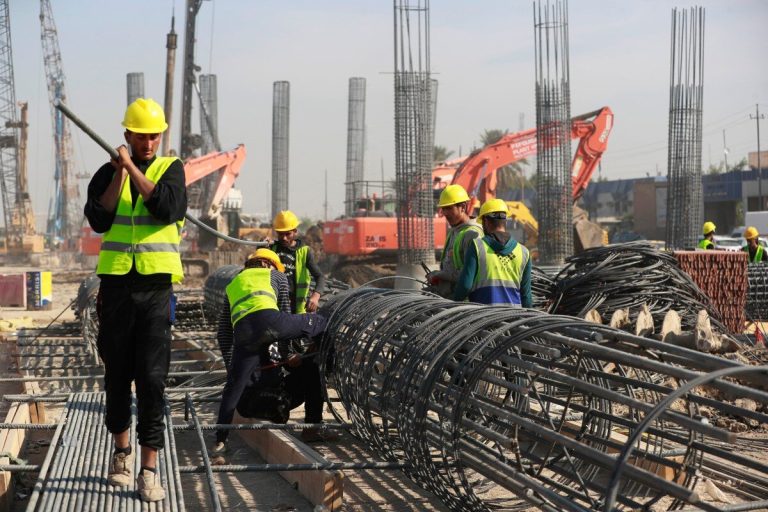São Paulo – Iraq’s economy is expected to grow less and record an account balance deficit this year and in 2024 due to the reduction in oil revenue and increased public spending. In a release made public this Tuesday (19), the International Monetary Fund (IMF) said the country had adopted measures to contain inflation and stabilize the economy. However, there are challenges for the next two years. Pictured above, a construction in the capital, Baghdad.
From December 12 to 17, Iraqi authorities and an IMF staff team met in Amman, Jordan, to assess the Iraqi economic outlook. After the visit, the head of the mission, Jean-Guillaume Poulain, released a statement. In the release, Poulain said the country’s non-oil industries are projected to close this year with a growth of 5% and maintain a solid expansion for next year.
However, lower activity in the oil sector is expected to slow down the country’s Gross Domestic Product (GDP) growth this year and in 2024. Among the reasons for the lower oil output are the production cuts approved by the Organization of the Petroleum Exporting Countries and its allies (OPEC+), of which Iraq is a permanent member, and the closure of a pipeline connecting it to Turkey.
In the Fund’s release, Poulain also expressed concern about the country’s account deficit this year, which is expected to increase in 2024 despite the surplus in 2022. “The large fiscal expansion, including a substantial increase in public hiring and pensions, creates permanent spending that will put pressure on public finances over the medium term,” said Poulain in the document.
The IMF also noted that Iraqi inflation has already dropped since the peak recorded in January and is expected to stabilize in the coming months due to the tighter monetary policy of the Central Bank of Iraq, lower food prices, and normalization of trade finance.
Translated by Elúsio Brasileiro




